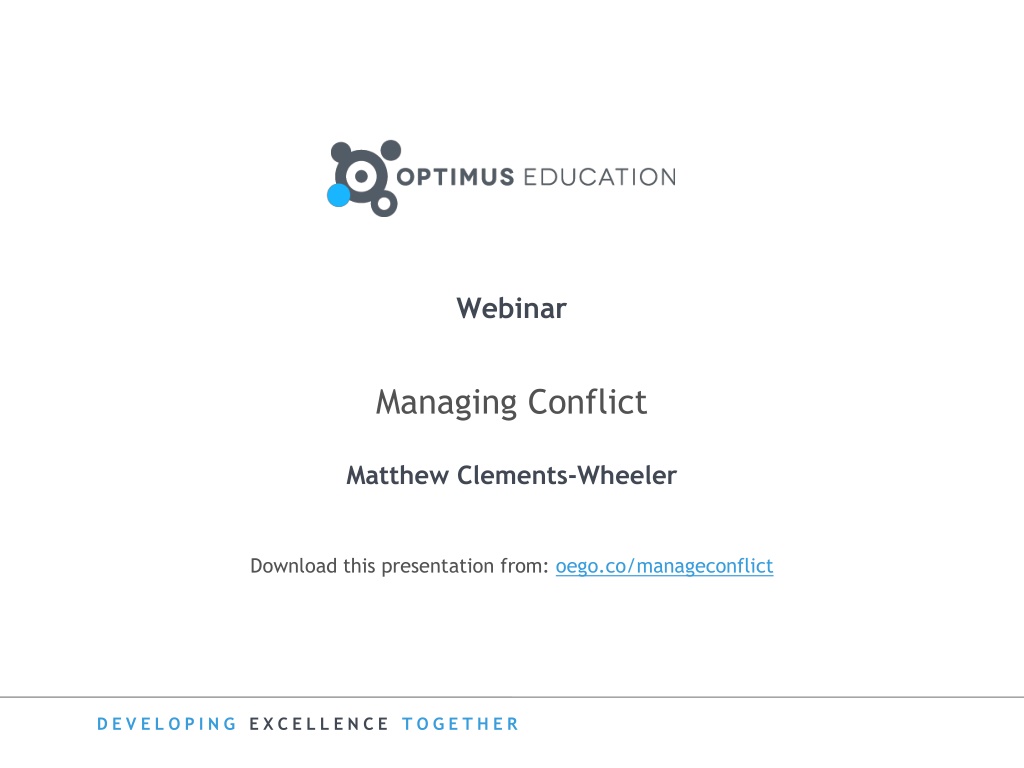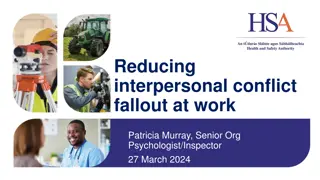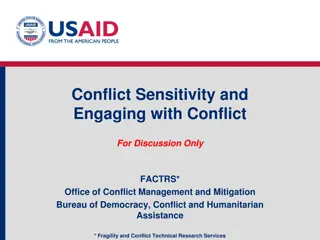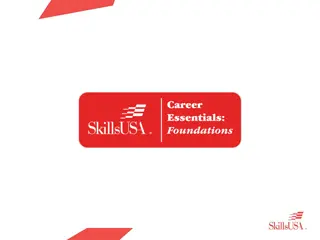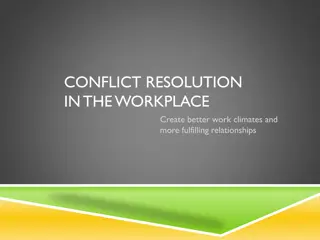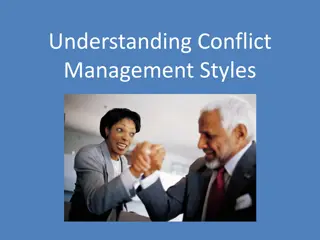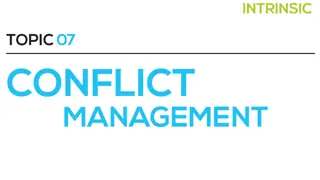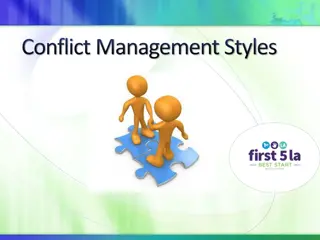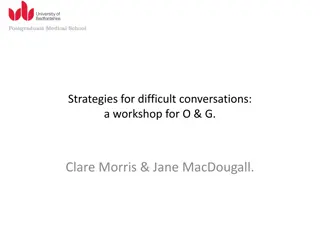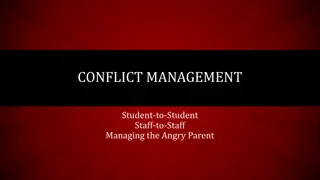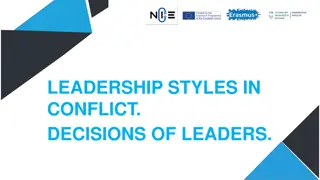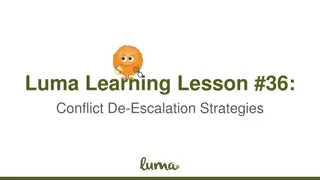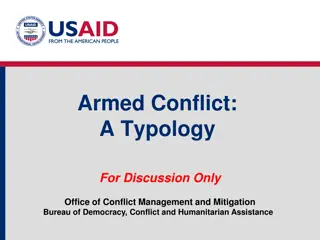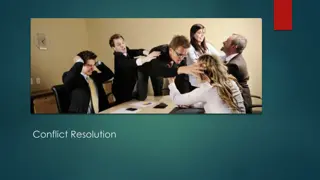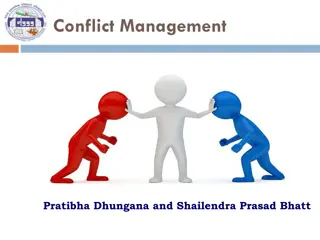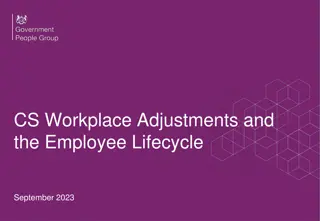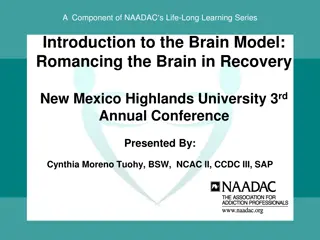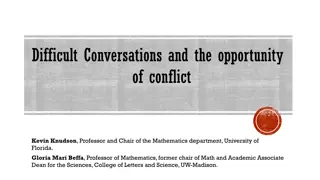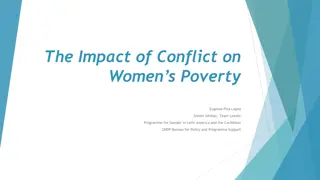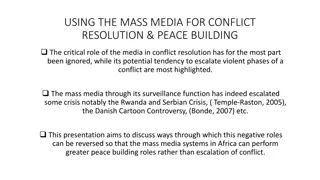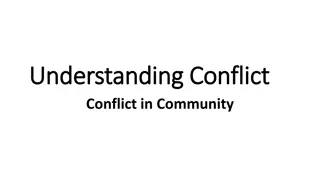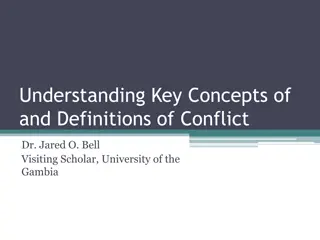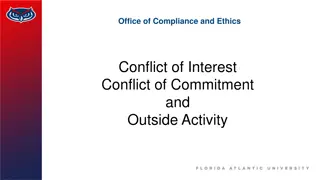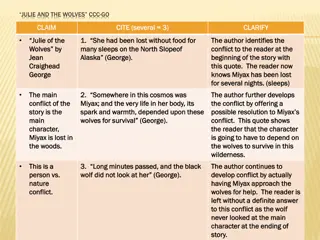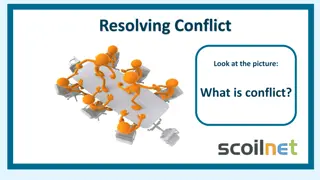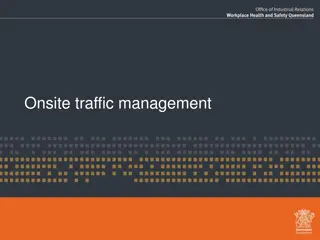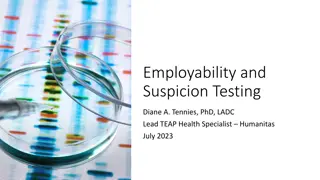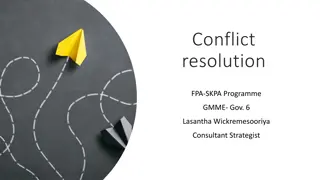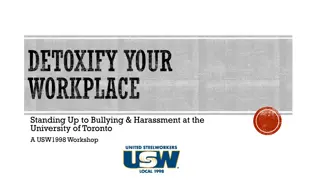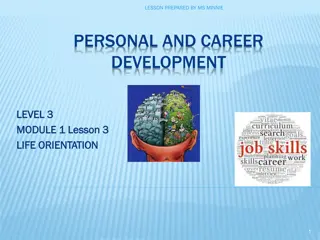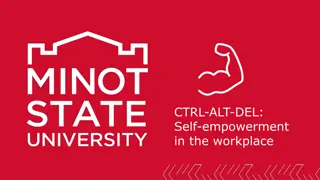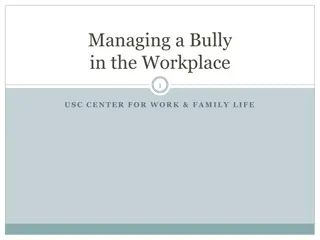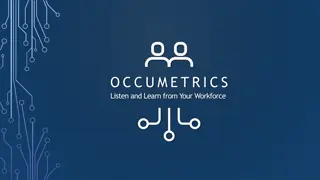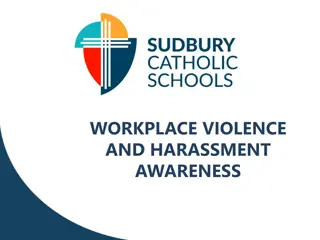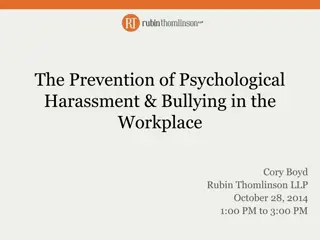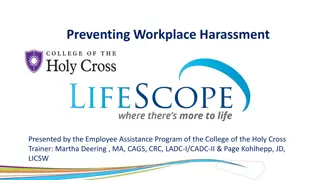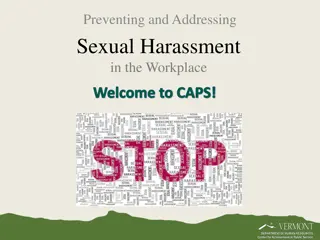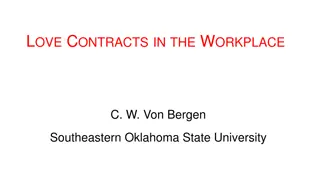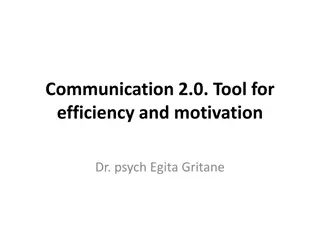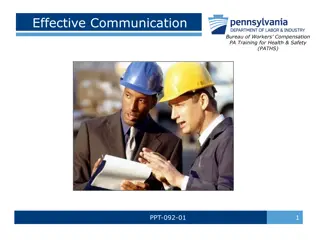Effective Conflict Management Strategies for Workplace Excellence
This webinar on managing conflict by Matthew Clements-Wheeler provides insights on understanding, addressing, and mediating conflicts in the workplace. Learn how to select effective strategies, identify challenger and collaborator behaviors, and enhance confidence in conflict management. Gain the ability to turn conflicts into opportunities for collaboration and positive outcomes.
Download Presentation

Please find below an Image/Link to download the presentation.
The content on the website is provided AS IS for your information and personal use only. It may not be sold, licensed, or shared on other websites without obtaining consent from the author. Download presentation by click this link. If you encounter any issues during the download, it is possible that the publisher has removed the file from their server.
E N D
Presentation Transcript
Webinar Managing Conflict Matthew Clements-Wheeler Download this presentation from: oego.co/manageconflict D E V E L O P I N G E X C E L L E N C E T O G E T H E R
This session will help you: understand what conflict is understand why it happens and why we feel bad about it understand the potential positive place for conflict know when to address conflict and when to mediate. Is conflict always bad? Sometimes much good can come from it. D E V E L O P I N G E X C E L L E N C E T O G E T H E R
Outcomes Be able to select strategies for dealing with workplace conflict. Identify Behaviours challenger and collaborator. Articulate the link between conflict management and the NASBM professional standards. Feel more confident by drawing on our top tips. D E V E L O P I N G E X C E L L E N C E T O G E T H E R
Conflict Many of us find conflict hard to handle. However, in order to progress in our roles, lead teams effectively and influence others, we need to be able to deal with conflict and recognise its positive potential. The purpose of the webinar is to build listeners confidence in dealing with conflict, and turning it into something more positive e.g. the opportunity to tackle an issue; work through the conflict to a more collaborative solution. D E V E L O P I N G E X C E L L E N C E T O G E T H E R
What is conflict? Definition a serious disagreement or argument, typically a protracted one: "the eternal conflict between the sexes" "doctors often come into conflict with politicians" synonyms: dispute quarrel squabble disagreement How does conflict manifest itself? Communication: verbal forms, non verbal forms. Physical: aggression, removal of resources, relocation. D E V E L O P I N G E X C E L L E N C E T O G E T H E R
Conflict manifests differently D E V E L O P I N G E X C E L L E N C E T O G E T H E R
Why does conflict happen? Differences of opinion Differences in style Scarcity of resources Uneven workload Unequal treatment From http://www.practical-management-skills.com/definition-of-conflict.html D E V E L O P I N G E X C E L L E N C E T O G E T H E R
Emotional response to conflict Stage Discomfort What s happening? Someone is increasingly unhappy with the status quo A neutral action occurs The neutral action is misunderstood Unhappiness increases due to a feedback loop based on the misunderstanding Neutral action occurs which sparks a sudden outpouring of tension Incident Misunderstanding Tension Crisis Adapted from: http://www.practical-management-skills.com/conflict-theory.html D E V E L O P I N G E X C E L L E N C E T O G E T H E R
A positive place for conflict Unhealthy conflict is a problem. Healthy conflict refines and shapes ideas alerts people to a problem generates ideas and different solutions refines weak arguments and poor practice creates new alliances. Accept challenge and healthy debate- create a safe space . D E V E L O P I N G E X C E L L E N C E T O G E T H E R
To address or to mediate? Know when to address conflict and when to mediate. Avoid making sweeping decisions or changes too soon, unless absolutely necessary. Investigate with an open mind, and don t assume everything you hear is true! Drill down the 5 Why s Wisdom of Solomon D E V E L O P I N G E X C E L L E N C E T O G E T H E R
Identifying Behaviours: Collaborators Helps the team establish long-term goals and clarify its current objective. Helps the team see how its work fits into the total organisation. Regularly reminds the team of the need to revisit their goals and action plans. Encourages the team to establish plans with milestones and assignments. Pitches in to help out other team members who need assistance. Works hard to achieve team goals and to complete the tasks even if they don t agree. Does not gossip about other team members. Often works outside his/her defined role to help the team achieve its goals. Is flexible and open to new ideas or data that may alter team goals. Is willing to share the limelight with other team members. D E V E L O P I N G E X C E L L E N C E T O G E T H E R
Identifying Behaviours: Challengers Candidly shares views about the work of the team. Is willing to disagree openly with the leadership of the team. Often raises questions about the team s goals. Pushes the team to set high ethical standards for work. Speaks out even when views are contrary to the majority. Asks why? and how? and other relevant questions at team meetings. Sometimes is accused of not being a team player because he/she has different opinion. Challenges the team to take well-conceived risks. Is honest in reporting team progress and stating problems facing the team. Will back off when views are not accepted and will support a legitimate team consensus. D E V E L O P I N G E X C E L L E N C E T O G E T H E R
Strategies for dealing with workplace conflict Set clear expectations. Model what you want act with integrity handle your own conflicts well. Invest (considerable) time. Seek peer review of your findings/intended course of action. Have policies and procedures available just in case . D E V E L O P I N G E X C E L L E N C E T O G E T H E R
Design out conflict Scope the route Accept detours Plan in rest stops Refer to the map when lost D E V E L O P I N G E X C E L L E N C E T O G E T H E R
Conflict management and the NASBM professional standards D E V E L O P I N G E X C E L L E N C E T O G E T H E R
Our top tips Acknowledge there is an issue Act if it needs dealing with, deal with it before it festers Ask (if necessary), then listen, for a long time Stop reading this list. You re still at listening De-escalate see listening Communicate clearly Signpost where you are at /where next /destination Be aware. Just because all seems well now doesn t mean it will continue to be so D E V E L O P I N G E X C E L L E N C E T O G E T H E R
Our top tips Avoid disciplinary or grievance procedures until you have tried less formal approaches. Take things personally conflict management is your responsibility. Avoid factions within your teams use meetings and training sessions to engender cohesion. arrange training sessions to help staff work well together. D E V E L O P I N G E X C E L L E N C E T O G E T H E R
Our top tips Set out your expectations - make explicit in person specifications - during induction - part of performance management. Remind staff that the pupils are at the centre of everything they do. Look for win/win. Reflect on what you could do differently next time to avoid it happening again. D E V E L O P I N G E X C E L L E N C E T O G E T H E R
Questions & Answers Find more resources at: my.optimus-education.com/knowledge-centre/school-business-management Follow us on Twitter: @OptimusEd @BusinessOE D E V E L O P I N G E X C E L L E N C E T O G E T H E R
